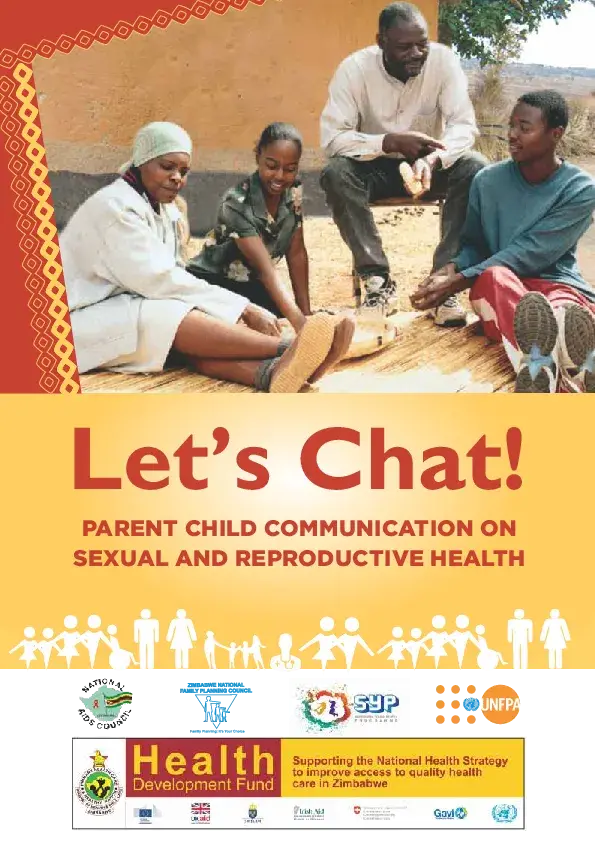Ministry of Health and Child Care (MoHCC), Ministry of Women Affairs and Youth (MoWAY), Zimbabwe National Family Planning Council (ZNFPC) and National AIDS Council (NAC) and other partners are contributing to the Health Development Fund (HDF) 2016-2020. With support from DFID, Irish Aid and the Government of Sweden, this programme is implemented within the context of the National Health Sector Strategy (2016-2020).
This programme aims to increase knowledge and utilisation of integrated HIV prevention, SRHR and SGBV services. A component of this programme encapsulated in this manual concentrates on enhancing parent to child communication on sexual and reproductive health and rights and sexual gender based violence (SGBV) at family and community level.
The methodology brings parents and adolescents together through facilitating group meetings. These group meetings provide an environment for open dialogue and communication on issues around SRHR and SGBV and a social support network within their own community.
Adolescents and parents both benefit when PCC about sexuality is open and honest. There are both immediate and long-term improvements in SRH for the adolescent and relational benefits for the family unit. These benefits extend beyond the family environment to the community as a whole by providing for heathier more stable family units and individuals.
While it is recognised that changing an individual’s behaviour remains the responsibility of that individual, creating an environment that supports and encourages positive behaviour change requires effort and commitment from a multitude of players. The Community Health Workers (CHWs) as mentors in the PCC groups are key agents in this endeavour. However, the group members are also key contributors to building change in their own and their fellow group members’ lives. Providing information and education is only one component of influencing change of an individual’s behaviour.
The mentors, working with the support and under the guidance of implementing partner organisations, are aware of this limitation and as a result will draw on the expertise and skills of other organisations located within their communities. These organisations, from faith-based entities to health facilities, to law enforcement agencies and support groups, are equipped with diverse skill-sets to assist individuals and communities in changing their behaviour. As a result, Club members who require information beyond the expertise of the mentor will be referred to these organisations for services.
Working together, these organisations and CBWs will strive to improve parent to child communication on sexual and reproductive health and rights and sexual and gender based violence at the family and community level. In that vein, we would like to thank individuals and organisations that have contributed in any way to the development of this guide.
This manual is an updated version of the January 2015 version and will be used as part of the demand generation tools for community health systems as of 2018.


